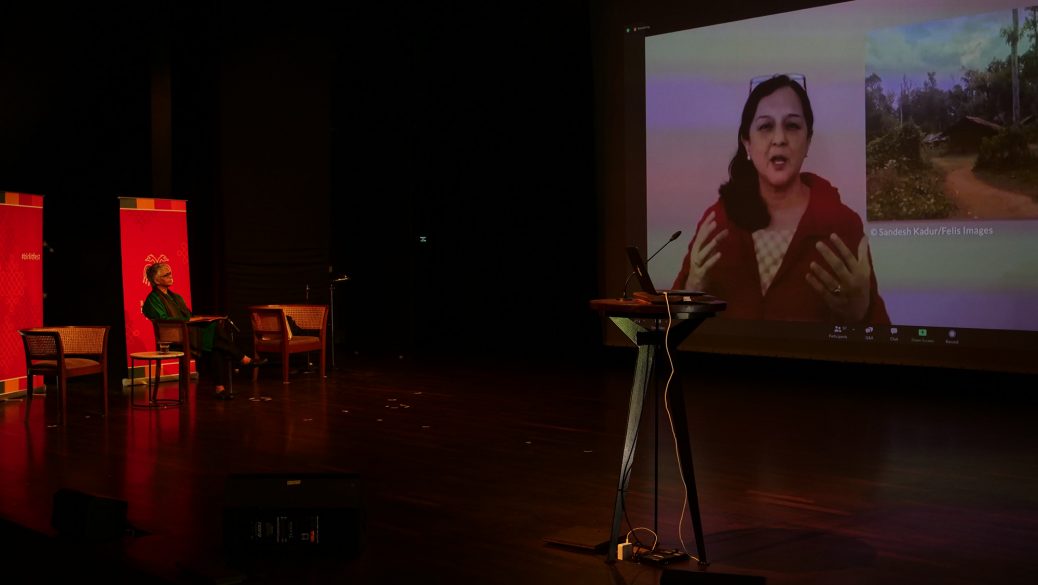The session began with a screening of a short film where Rohini Nilekani shared her experience looking for a Black Panther in the Kabini forest, Karnataka. She made us fall in love with this panther, which she lovingly calls Blacky, that has an irresistible pair of yellow eyes and evenly black skin. The film consisted of so many stunning photographs of this panther clicked by various people. She took us on this trip to the forest, describing its vastness and beauty. She explained to us why she describes this experience as romancing the black panther by defining what romance meant to her. She delved deep into her experiences in this forest space, given the numerous amount of times she has been there. We understood the way in which this experience has given her a sense of peace and also made her introspect. She connected her ideas with that of some interesting figures like Henry David Thoreau and Leo Tolstoy. This film then shifted its focus to environmental sustainability, conservation, and biodiversity. She described this journey of looking for Blacky as symbolic of engaging with the natural world.
Usha KR, the moderator, led the session with a narration of the poem ‘Ithaka’ by C.P. Cavafy and linked it to Nilekani’s experience. Nilekani spoke of her motivation to engage with the natural world and motivated the audience to introspect too. She also introduced us to a book called ‘Animal Intimacies: Interspecies Relatedness in India’s Central Himalayas’ by Radhika Govindrajan, which deals with how people create stories about animals, and their relationship with these animals.
Usha then steered the discussion towards the topic of climate change and its urgency. Nilekani examined this problem faced by the entire world and presented us with solutions and answers that could help turn this situation around. This led to a discussion on the economic model in India and how it should (and can) be restructured to help protect the planet from further damage. She spoke with great confidence in the youth population who she considers to be cautious about their carbon count.
On being asked to describe her approach to such important topics for children’s literature, Nilekani shared the problems faced by her as a writer for children. This included her difficulty in trying not to sound too didactic, or indulge in writing down to them. She then prompted the audience to engage in more literature because she believes it is the only way to develop critical thinking which leads to introspection. She also gave many book suggestions for children as well as adults to further engage with ecological aspects. The session ended with an interactive question-answer round.
About the Author: Immersed in the process of unlearning and relearning different values and ideas, Nanditha Murali chooses writing as her medium to approach the world. She is currently pursuing her English (Honours) degree at Christ University, Bangalore. She currently writes for TheSeer.


